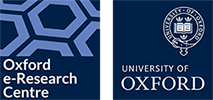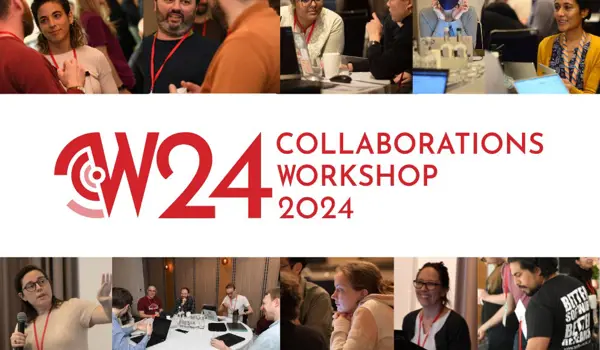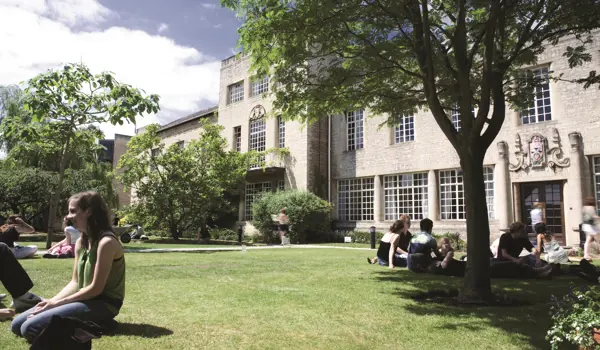First SWForum.eu workshop on trustworthy software and open source
Location
Online event
Date & Time
Tuesday 23 Mar 2021 - Thursday 25 Mar 2021
The SWForum project aims to create a self-sustainable online forum that facilitates and encourages both researchers and practitioners as well as projects in software, digital infrastructure and cybersecurity to create intersections of expertise and a multidisciplinary approach to research and innovation. In this light, the project is organising a Workshop on trustworthy software and open source. Oxford e-Research Centre researchers are participating in the organisation of the workshop as project members.
Submission of contributions: **EXTENDED** February 28th, 2021
Notification of acceptance: March 12th, 2021
Online workshop: March 23rd-25th, 2021 (16:00-17:30 CET each day)
Topics
Nowadays, the increasing importance of software for businesses, industry and the life of common citizens makes the notion of trustworthiness a crucial one. Trustworthy software is that for which some important properties such as correctness, compliance, reliability, availability, performance, safety, security, maintainability, privacy of data, energy efficiency, sustainability, and certified interaction with humans are ensured.
- Characteristics of trustworthy software
- Developing trustworthy software
- The role of open source in the development of trustworthy software
Workshop Format and Keynote Speakers
The workshop format will be highly interactive and is the first one of a series aiming at triggering the discussion around trustworthy software and the tools and methods to support its development.
An introduction to the workshop will be made by Luis Carlos Busquets Pérez (European Commission).
Four inspiring keynotes will be offered during the workshop held by the following distinguished speakers:
- Tony Wasserman, Carnegie Mellon Silicon Valley (USA)
- Roberto Di Cosmo, IRILL (France)
- Frank Karlitschek, CEO Nextcloud (Germany)
- Matthias Eckermann, SUSE (Germany)
Types of Contributions
- Position papers in which authors describe their position in a specific topic relevant to the workshop subject.
- Technical papers in which the authors present some technical results about their studies in trustworthy or open-source software.
- Demo papers in which the authors present their open-source tools where trustworthiness is relevant.
- Panel proposals specifying the topic to be discussed, why it is relevant in this workshop, and the list of panellists.
The submissions will be assessed by the workshop Program Committee for their relevance to the workshop topics and their potential impact in the discussion.
Position, technical, and demo papers will be published as open access CEUR-WS proceedings
How to submit
LNCS style must be used in formatting position, technical, and demo papers, and they must be 5-pages long.
Panel proposals can be in any format.
The EasyChair platform at https://easychair.org/conferences/?conf=1stswforumws is available for submission of all contributions.
Program Chairs
- Elisabetta Di Nitto, Politecnico di Milano (Italy)
- Pierluigi Plebani, Politecnico di Milano (Italy)
Program Committee
- Giuseppe Cascavilla, Eindhoven University of Technology (The Netherlands)
- Cristina Chesta, Concept Reply (Italy)
- Ana Juan Ferrer, ATOS SA (Spain)
- Nicolas Ferry, University Côte d'Azur (France)
- Xavier Franch, Universitat Politècnica de Catalunya (Spain)
- Giovanni Frattini, Engineering Ingegneria Informatica (Italy)
- Francisco Gortazar, Universidad Rey Juan Carlos (Spain)
- Indika Kumara, TU/e - Jheronimus Academy of Data Science (The Netherlands)
- Zoltán Ádám Mann, University Duisburg-Essen (Germany)
- Anna Perini, Fondazione Bruno Kessler (Italy)
- Dana Petcu, West University of Timisoara (Romania)
- Jacopo Soldani, University of Pisa (Italy)
- Vlado Stankovski, University of Ljubljana (Slovenia)
- Cédric Thomas, OW2
Register
Please follow this link to register for the event
Acknowledgements
This workshop is supported by the European Commission under the H2020 Programme, Project n. 957044.


